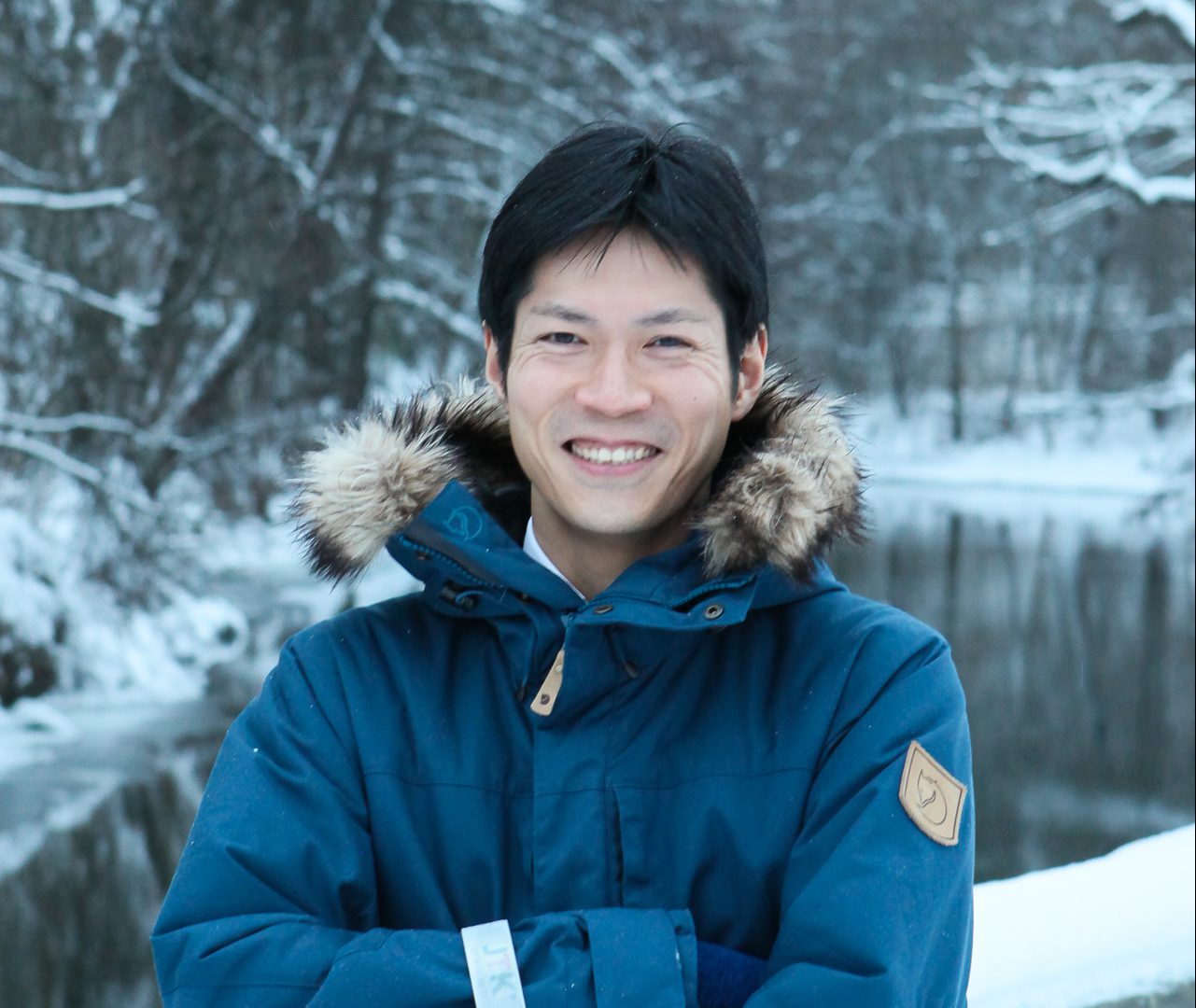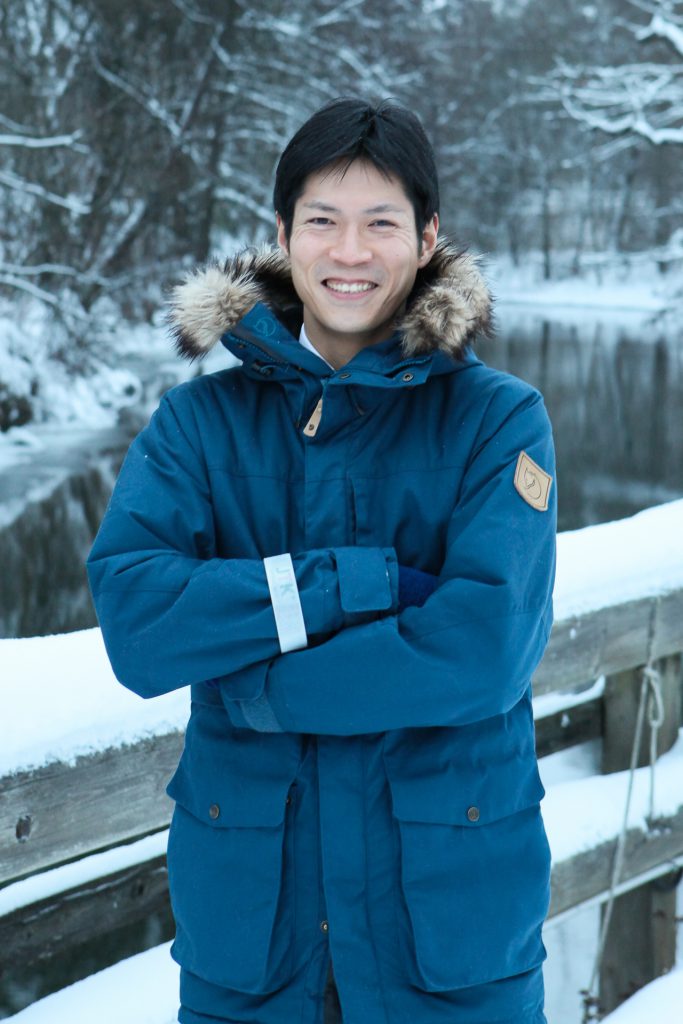From the aftermath of the tsunami to the big Finnish forest

Every career path is unique. However, you do not every day come across such an exceptional career story as the one our Executive Vice President of Sales, Shun Kato, has to share. Today, Shun is in charge of sales development working together with sales. He came to Finland to work at Jujo nearly two years ago, back in May 2017. “My assignment at Jujo is my first one abroad. Before Jujo, I worked at wholesales department of Jujo´s parent company Nippon Paper Industries at their Tokyo office,” Shun says.
Shun started his career at NPI at the production planning department in Tokyo. He had been working at NPI since 2002 after graduating from the Yokohama City University (Bachelor of Economics). “I chose to work for NPI because I felt it was a responsible company that took care of the sustainability issues as well,” Shun continues. In 2006, Shun moved on to the publisher sales department in Tokyo.
Crystal clear memories
“The publisher sales department where I worked was responsible of the paper sales used for magazines, comic books, novels and so on. The group company Ishinomaki mill was very good at producing special book paper: For NPI, 50% of the Japanese publishers´ paper was made at the Ishinomaki at that time,” Shun explains. He had been working at the publisher sales department for five years when The Great Eastern Japan Earthquake occurred and changed his and many other people’s lives permanently. “I still remember that day like it was yesterday. It was Friday 11.3.2011. In the morning I took one of our major customers to Tokyo bay to show the cargo vessels that transport paper between USA and Japan. The earthquake occurred after I came back to the office later that day, at 2.46 pm to be exact,” Shun continues. The center was the north-east part of Japan, which is the region where earth quakes often occur. The earthquake was tremendously strong, and took place beneath the ocean level, so a very large area of the coast line was affected. Between 3.30 pm and 4.30 pm, massive tsunami waves hit the coast line along which the Ishinomaki mill was located as well. “That afternoon felt like forever. Quakes kept coming and our office building was swinging. There was no possibility to leave anywhere. All the phone connections and transportations were down, so I decided to sleep on the floor of the office that night, as was the case with other co-workers too,” Shun describes.
Quick decision making
“Initially, I thought that the earth quake would stop the Ishinomaki mill maybe for a week, maximum for a month. No TV stations had shown Ishinomaki, but meanwhile they broadcasted the videos of many other coastal areas hit by the tsunami. So, I optimistically thought that Ishinomaki city was not affected by the Tsunami. There were no communication connections available to the Ishinomaki mill during that Friday. We decided to have an emergency meeting on the following day to come up with how to ensure the paper supply, in case the Ishinomaki was damaged. On the Saturday, as soon as the meeting started, we finally got the first images from the Ishinomaki. It was a shock. We barely recognized what the images showed, which was the mill gate soaked in muddy water mingled with flown houses and cars,” Shun explains.
“After we realized the Ishinomaki had severe damages, we had no choice but to just accept the reality and concentrate on finding a substitute. Since I have worked with the paper quality for publishers for such a long time, I remembered the paper recipe by heart. And I could explain which quality elements would be the most important to the customer. I soon found a mill that could be a candidate to produce the customized novel paper - NPI´s Fuji mill. Hence, on Monday we agreed with the Fuji factory that they will start to produce the paper with their machines, and on Friday the production was already running. I think one of the reasons why we were able to move the production in such a short time, was fast decision making. And, of course, the Japanese publishers’ flexibility to accept a somewhat different paper grade during that difficult time,” Shun says.
Farewell to Tokyo
All machines were resumed and the production at Ishinomaki was running again by August 2012. In October 2012, Shun was assigned to Ishinomaki to work in logistics projects and as a guest receptionist. “It was hard to move to Ishinomaki because I felt quite scared to live there after the earthquake. But after all, it turned out to be one of my best work experiences since everyone was so cooperative, and it was exciting to develop new products together again,” Shun says.
“I remember the first day very well. I had to take the bus for the last 50 kilometers to reach Ishinomaki. I did not see any damaged coastal areas on the way, since the route went inland. For the last few kilometers, we turned to a road along the coastline. The scenery totally changed. It was all grey and all the buildings had foundations only or parts of the first floor left. There were piles of debris and garbage here and there. The whole town was so dusty that I could not see further than 100 meters,” Shun describes.
Shun’s main task was to resume logistics and transportations systems to match the production volumes and recover the freight container system at the Ishinomaki mill. “It was quite a tough negotiation with Japan Railways (JR) to accomplish the required changes to the railway systems,” Shun reveals. But the project was successful, and by February 2013, the freight container system was resumed.
At the same time, Shun was hosting visitors at Ishinomaki. “Opposite of what we expected, the visitor amount increased after the quake; customers, stakeholders etc. were interested to see the place and hear the stories. I tried to take on as many visitors as possible in order to tell them about the historical event that occurred in that town, even for the overseas visitors from Asia, Northern America and Oceania. The total amount of visitors during my stay in Ishinomaki was around 500,” Shun continues. Shun worked at the Ishinomaki for 3 years
A career in the Finnish paper industry
In Japan, people usually have very long careers by the same employer. “I have been lucky to be part of a company like NPI that can provide various possibilities to advance in my career. My career story´s most recent change of plot took place in May 2017 when I was assigned to work at Jujo in Finland. At first, it was difficult to adapt, because everything was different from Japan. Kauttua village, where the mill is located, is quite a different surrounding compared to Tokyo,” Shun laughs. “But here the rhythm of life is much more peaceful and nature is really beautiful. And personally, I think the most important part when being assigned abroad is a loving family that supports you,” Shun continues.
“The thermal paper market is growing, but we are eager to develop new products, and even new markets, to keep Jujo Thermal in a profitable shape also in future years. I am confident that paper will remain a material in one form or another” Shun says. He points out that Jujo´s strengths are fast decision making and strong development work. “I have experienced an unusual predicament in my career. The most important lesson that I have learned, is that one person cannot do that much, but when you have a group of people who is sharing the common target, miracles can happen. During my short stay here in Finland, I hope that we together with the personnel can create a strong future for Jujo,” Shun ends with a smile on his face.

